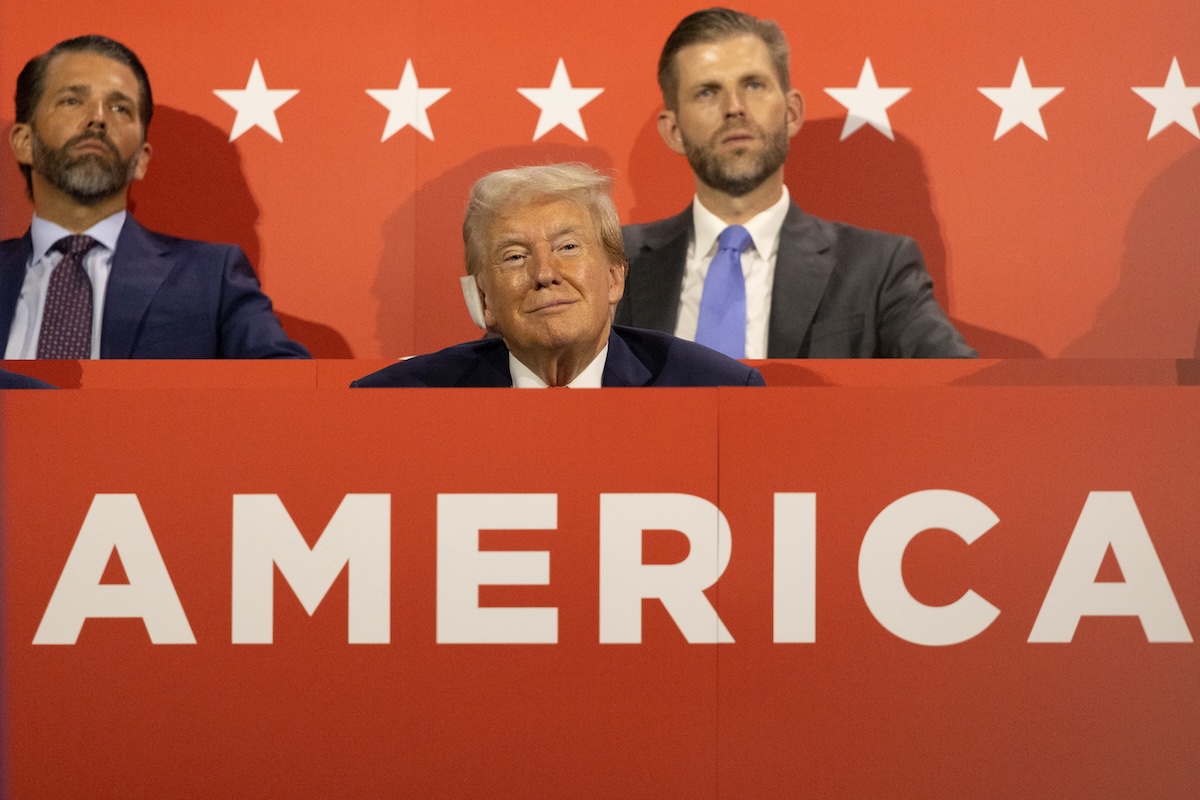
The Trump administration confirmed Friday that the federal government has taken a 10% stake in Intel (INTC), raising fundamental questions about whether America is still a free-market economy.
Bloomberg called the move “a stunning level of intervention in an American company, cutting against the principles of free-market capitalism that investors and policymakers have long considered sacrosanct.”
The even bigger irony is that it happened under a Republican president/
For decades, the GOP branded itself as the “Party of Reagan,” invoking the former president’s mantra that “government is not the solution to our problem, government is the problem.”
Reagan’s line, delivered in his 1980 inaugural speech, helped cement the party’s free-market identity at a time of deep economic malaise.
Now with Trump in charge, the same party is backing a direct government stake in one of America’s most important tech companies.
Commerce Secretary Howard Lutnick hailed the deal on X as a “historic agreement” that will “strengthen U.S. leadership in semiconductors” while boosting the economy and national security.
BIG NEWS: The United States of America now owns 10% of Intel, one of our great American technology companies.
undefined Howard Lutnick (@howardlutnick) August 22, 2025
This historic agreement strengthens U.S. leadership in semiconductors, which will both grow our economy and help secure America's technological edge.
Thanks to Intel… pic.twitter.com/AYMuX14Rgi
He credited Intel CEO Lip-Bu Tan for striking “a deal that’s fair to Intel and fair to the American People.” Trump himself told reporters it was “a great deal” for Intel.
Intel has been central to Washington’s semiconductor strategy, seen as the linchpin in efforts to bring chipmaking back to U.S. soil and reduce reliance on Asia. The company has even been described as “the only U.S.-based company with leading-edge semiconductor fabs”.
With the government now an owner, Intel’s future looks more secure.
But investors are left wrestling with a bigger question: has Washington just set a precedent for state-backed capitalism in America’s flagship industries?
GOP Split
Not all Republicans were cheering. Sen. Rand Paul blasted the plan as a step toward socialism. “If socialism is government owning the means of production, wouldn’t the government owning part of Intel be a step toward socialism? Terrible idea,” he said.
If socialism is government owning the means of production, wouldn't the government owning part of Intel be a step toward socialism?
undefined Rand Paul (@RandPaul) August 20, 2025
Terrible idea.
What to know about the US getting a stake in Intel | AP News https://t.co/3UHCM39NUB
Meanwhile, Sen. Thom Tillis told interviewers that even a token stake “starts feeling like a semi-state owned enterprise, à la CCCP.” “You’re going to have to explain to me how this reconciles with free market capitalism,” he added.
Sen. Tillis on Trump's 10% stake in Intel: undefinedI don't care if it's a dollar or a billion dollar stake in an American company, that starts feeling like a semi-state owned enterprise, à la CCCP...You're going to have to explain to me how this reconciles with free market capitalism.undefined pic.twitter.com/7OeJ7eE93Z
undefined Republican Accountability (@AccountableGOP) August 21, 2025
Intel stock jumped 5.5% on Friday after the news, before dipping 1.1% in after-hours trading.
Some analysts framed the government’s involvement as bullish. Daniel Newman, CEO of Futurum Labs, argued that federal backing could spur other chipmakers — including Qualcomm (QCOM), Nvidia (NVDA), AMD (AMD), and Broadcom (AVGO) — to take fresh stakes in Intel.
But not everyone is convinced. Nigam Arora, founder of The Arora Report, said the market “is wrong in running up Intel stock,” arguing the deal is “negative for Intel.”
His math is simple. Intel was set to receive $10 billion from the government under the CHIPS Act, but instead must trade 10% of its equity, diluting shareholders and cutting earnings by an equivalent amount.
Your email address will not be published. Required fields are markedmarked